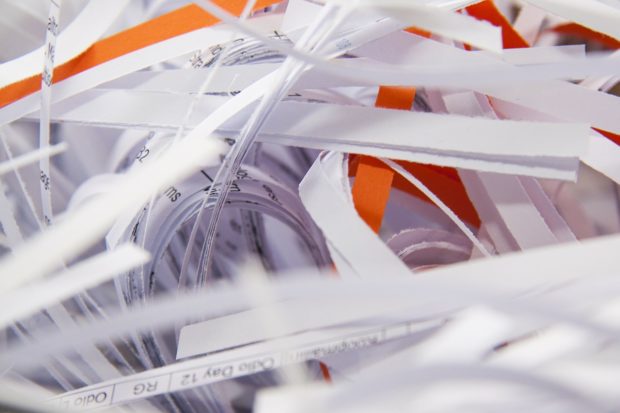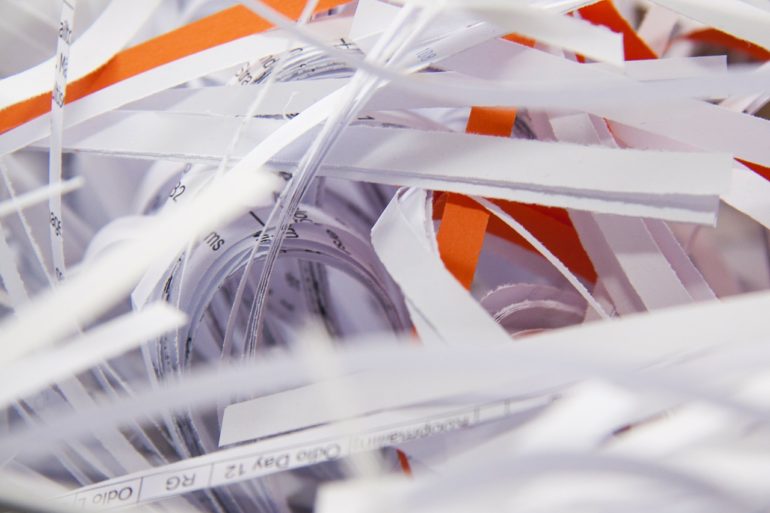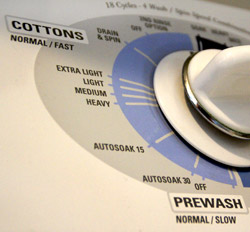
Half the battle of paying bills on time, being reimbursed for expenses, and keeping financial tools like insurance up-to-date is finding the right document when you need it! And, one of the reasons it’s hard to find the right document is that many of us keep too many documents.
Everyone needs to find their own system for organizing financial documents. For me, the key is to minimize what I keep.
I classify many documents as “Active,” meaning they’re current but I don’t plan to keep them long. For example, most receipts, credit card statements and other bills can be disposed of as soon as your next bill comes showing your payment. Keep medical bills until they’re completely paid and resolved, both by you and your insurance company.
Active financial paperwork never makes it into my “Save Forevr” file cabinet. I have a small file box with several hanging files that I use for this paperwork. When these files start getting full (about once a year), I go through and dispose of just about everything.
You may want to selectively keep some of these documents longer if they document either your income or expenses that you’ve included in your tax return. These documents I classify as “Tax Return” and go in a file folder labeled Taxes 2015. Then when I prepare my tax return, most of the documents I need are all in one place.
Even pay stubs likely can be disposed of as soon as you receive your W-2 and it lists your income accurately. If your pay stub includes other information such as proof that you had health insurance, then you want to include these in your Tax file.
Remember, keep documents that support your tax return. Examples of income documents include W-2 statements and investment account statements. You also may have documents that relate to expenses you’ve listed on your tax return. Examples of this could include charitable deductions, medical costs, interest paid on home mortgages or student loans, or other expenses related to self-employment income. Improvements to your home is an example of receipts to keep. Look over past tax returns or check with your tax professional to determine what you need to keep. These documents will vary from person to person.
Most people recommend keeping your tax returns and all documents that support the information on your return for 7 years. While the IRS usually has three years to audit you, it has up to seven years under certain circumstances. However, some people even say to keep them forever. Another option is to scan your paper documents and store the electronic files on an external drive, with a back-up on another device. Or, put them in a box in an out-of-the way spot!
Paper you’re disposing of can be either recycled or shredded. Shred items that include personal information such as your Social Security number, birthday, account numbers and your signature.
The last category I use to sort papers is “Save Forever” – or at least, a long time. For example, financial information such as auto titles, home deeds, and investment purchases you need to keep until you sell the property. Personal documents such as birth certificates, social security cards and citizenship papers all need to kept essentially forever.
In order to decrease paperwork, I also receive and keep some financial documents (such as insurance policies) in an electronic format. If you choose to store financial documents electronically, use a back-up system to duplicate your records.
What strategies are you using that help you? I’m always looking for new, effective ways to organize finances as I’d much rather do just about anything than file papers!
Shredding financial documents also helps protect you from identity theft.
Source: Kathy Sweedler, University of Illinois Extension Educator, Consumer Economics/ Originally published on September 14, 2015







